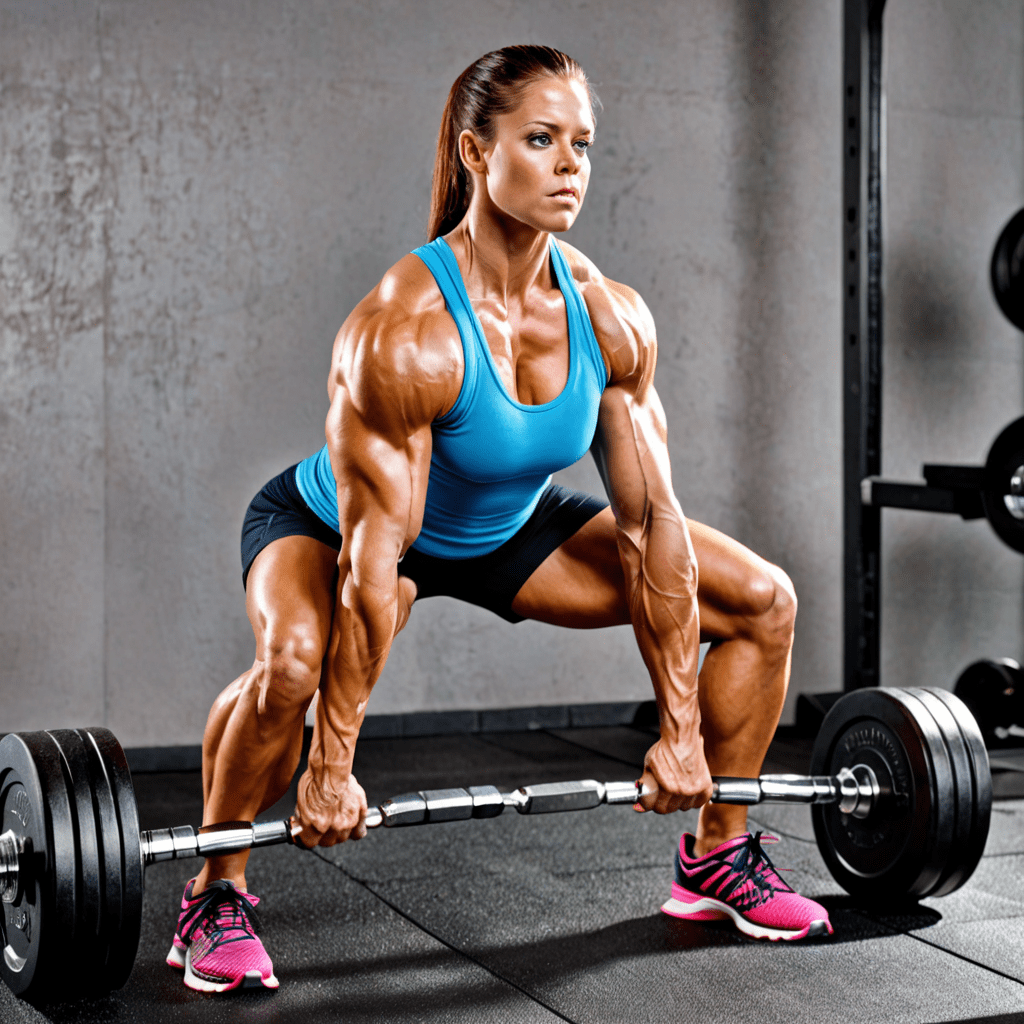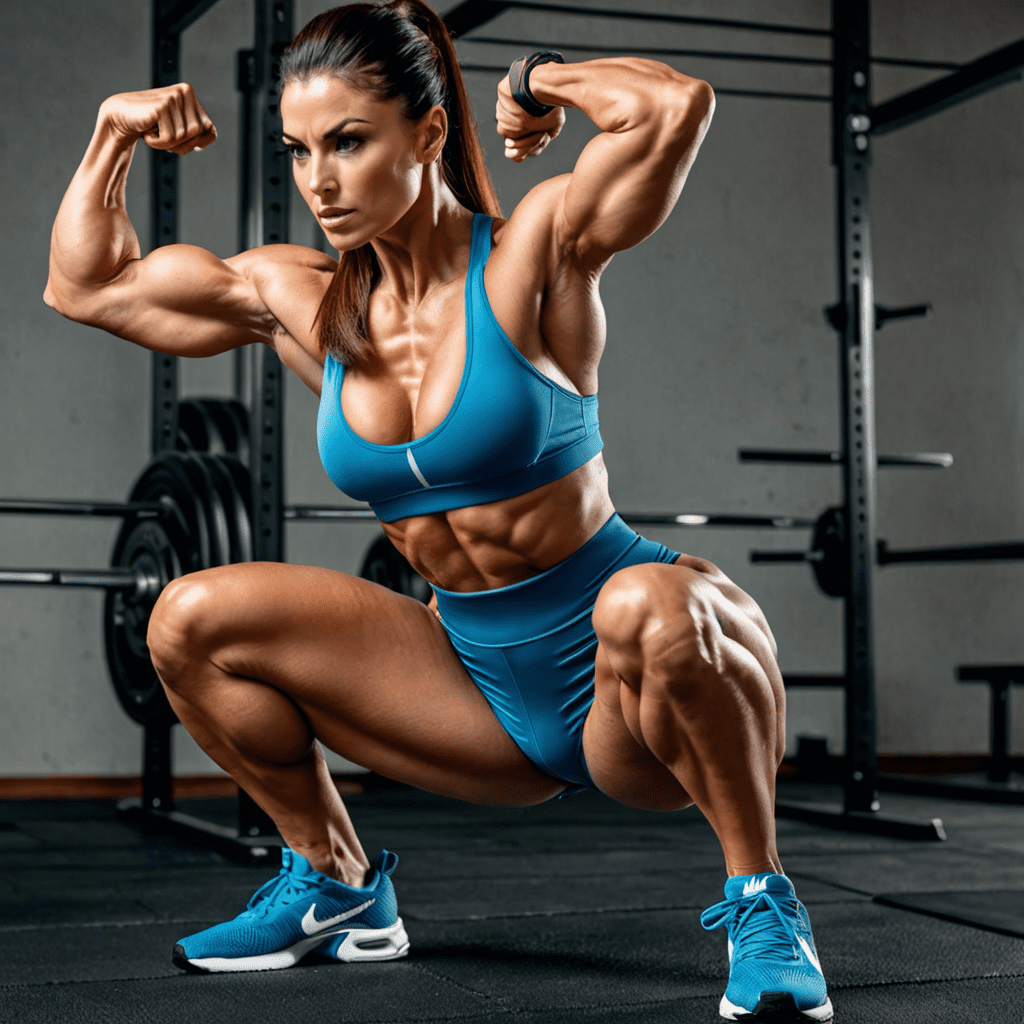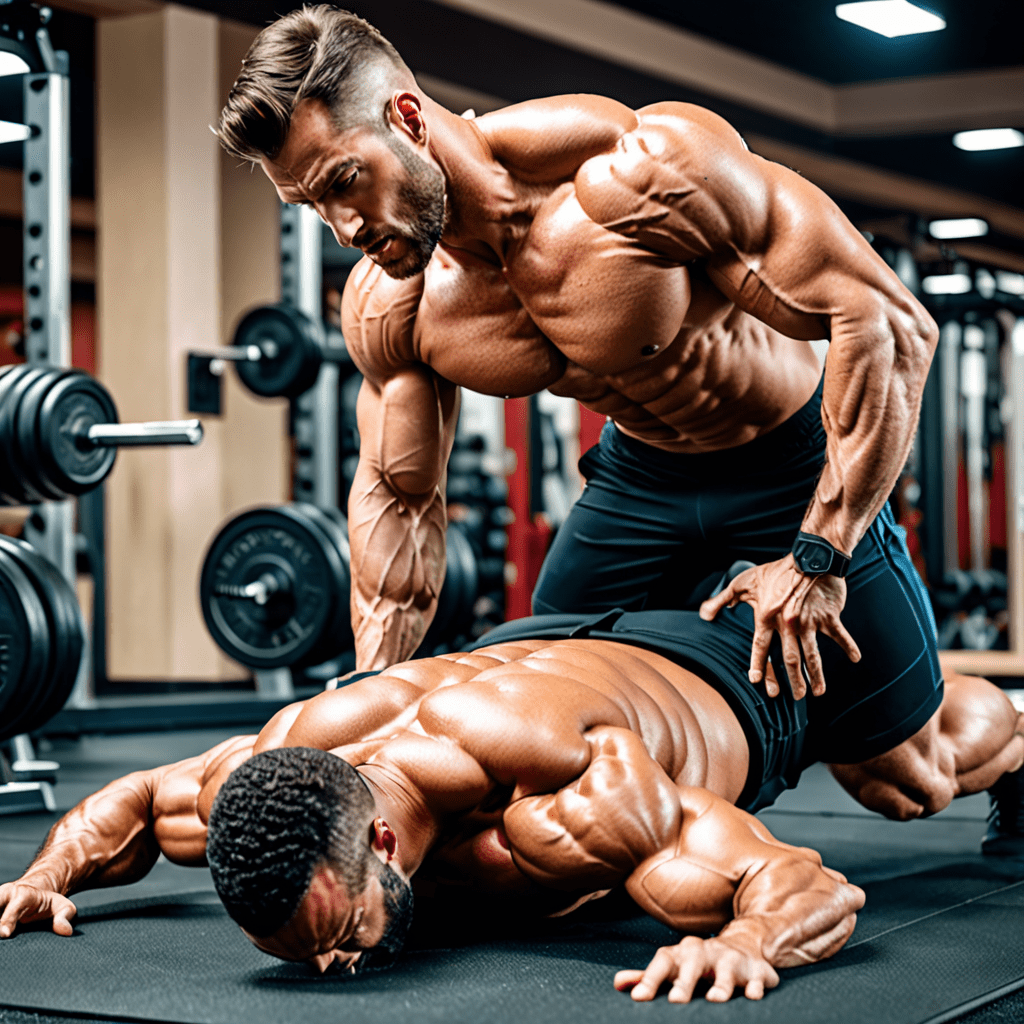
What Does Dumbbell Squat Work?
Dumbbell squats are a versatile and effective exercise that primarily targets the lower body muscles. By incorporating dumbbells into the squat movement, you can increase the intensity and activate additional muscle groups. In this article, we will explore the various muscles that benefit from performing dumbbell squats.
1. Quadriceps
The primary muscle group targeted during dumbbell squats is the quadriceps. These are the muscles located on the front of your thighs. The quadriceps consist of four individual muscles: the rectus femoris, vastus lateralis, vastus intermedius, and vastus medialis. Dumbbell squats heavily engage all of these muscles, helping to build strength and size in your quadriceps.
2. Glutes
Dumbbell squats also engage the gluteal muscles, which are located in your buttocks. The gluteus maximus is the largest muscle in this group and is responsible for hip extension and external rotation. By performing squats with dumbbells, you can target and strengthen your glutes, which can improve your overall lower body strength, stability, and athletic performance.
3. Hamstrings
Although the primary focus of dumbbell squats is on the quadriceps and glutes, the hamstrings also play a secondary role in this exercise. The hamstrings are a group of muscles located on the back of your thighs and consist of the biceps femoris, semitendinosus, and semimembranosus. Dumbbell squats help to engage and strengthen the hamstrings, promoting balanced lower body development.
4. Calves
Another muscle group that benefits from dumbbell squats is the calves. While the calves are not the main target of this exercise, they play a stabilizing role during the squat movement. The gastrocnemius and soleus muscles, which make up the calves, help to maintain your balance and stability while performing dumbbell squats. This engagement helps to strengthen the calves and improve lower body stability.
5. Core Muscles
In addition to targeting the major muscle groups in the lower body, dumbbell squats also engage the core muscles. Your core muscles, including the abdominals, obliques, and lower back muscles, play a crucial role in stabilizing your body during the squat movement. By performing dumbbell squats, you can strengthen and tone your core muscles, improving overall stability and balance.
6. Additional Muscles
While the primary focus of dumbbell squats is on the lower body, other muscle groups also contribute to the movement. The lower back, upper back, and shoulders are all engaged during the squat exercise to maintain proper form and balance. Additionally, dumbbell squats can also activate the arms and grip strength, as you must hold the dumbbells securely throughout the movement.
FAQ
Q: Are dumbbell squats better than bodyweight squats?
A: Both dumbbell squats and bodyweight squats have their benefits. Dumbbell squats allow you to add resistance, increasing the intensity of the exercise and promoting muscle growth. On the other hand, bodyweight squats are more beginner-friendly and can be easily performed anywhere without the need for equipment.
Q: How heavy should the dumbbells be for squats?
A: The weight of the dumbbells used should depend on your strength and fitness level. It is recommended to start with lighter weights and gradually increase as you become more comfortable and confident with the movement.
Q: Can dumbbell squats help with weight loss?
A: Dumbbell squats, like any other form of exercise, can contribute to weight loss when combined with a balanced diet and overall fitness routine. They help to build muscle, which can increase your metabolism and calorie-burning potential.
Q: Can dumbbell squats cause knee pain?
A: Dumbbell squats, when performed with proper form and technique, should not cause knee pain. It is crucial to maintain proper alignment, ensuring that your knees do not extend beyond your toes and that your weight is evenly distributed throughout your feet.
Q: Can I do dumbbell squats if I have back issues?
A: If you have back issues or any existing medical conditions, it is essential to consult with a healthcare professional before attempting any new exercise. They can provide guidance on whether dumbbell squats are suitable for your specific condition and offer modifications if needed.
Q: How often should I do dumbbell squats?
A: The frequency of dumbbell squat workouts depends on your fitness goals and overall exercise routine. It is generally recommended to include strength training exercises like dumbbell squats two to three times per week, with adequate rest days in between to allow for muscle recovery.

